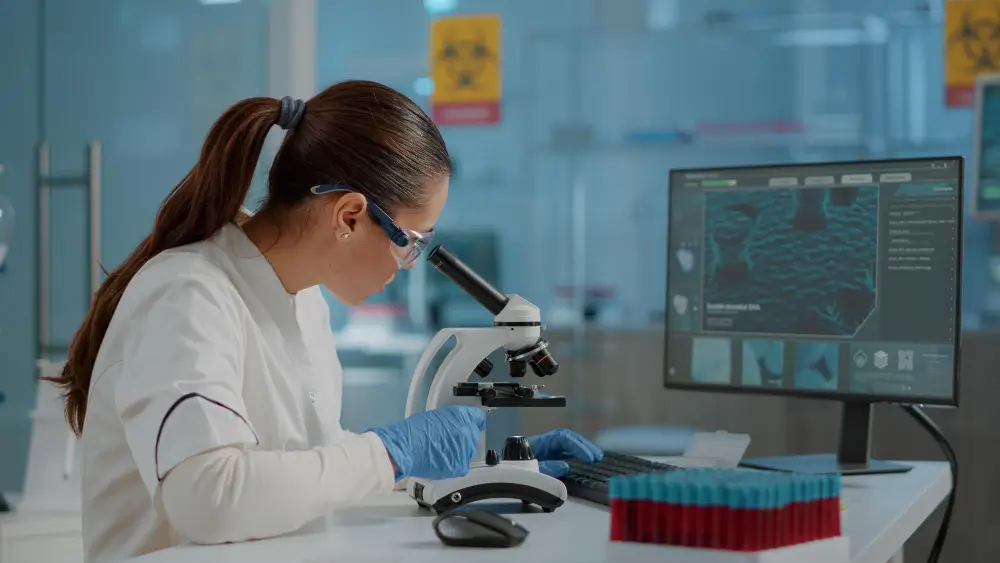
IVF and embryo transfer preparation is the most bittersweet phase of Connecticut surrogacy. Success begins far earlier than pregnancy — in the laboratory, where science, precision, and timing combine to create life. Connecticut has among the United States’ finest fertility clinics, and the most advanced reproductive technology and compassionate medical care for intended parents and surrogates.
This tutorial demonstrates how embryo preparation is conducted, what actually happens during the IVF process in Connecticut, and the way Surrogacy4All stands beside you and supports you through the process with personal care and concern.
Understanding IVF and Embryo Creation
In Vitro Fertilization, IVF, is when eggs are fertilized by sperm in the lab to create embryos. Those embryos are implanted into the surrogate’s uterus. For Connecticut surrogacy, the intended parents will generally use their own eggs and sperm, but donors can be used if necessary.
The IVF journey typically includes:
- Ovarian Stimulation: The egg donor or the intended mother is given medication to release more than one egg.
- Egg Retrieval: Eggs that are mature are retrieved under light anesthesia.
- Fertilization: Eggs are fertilized by sperm in the fertility clinic to form embryos.
- Embryo Culture: Embryos are kept under observation for two days to select the best to be implanted.
- Embryo Transfer: A selected embryo is transferred into the surrogate’s uterus.
The Role of Fertility Labs in Connecticut
Connecticut reproductive facilities have a better status for excellence in high IVF success rates, sophisticated genetic screening, and highly qualified embryology staff. They are the basis for:
- Offering uncompromising laboratory environments for embryo growth.
- Conducting Preimplantation Genetic Testing (PGT-A) to test embryos for inherited disease.
- Storing embryos securely in cryopreservation (freezing) for possible later use.
All of the above procedures are monitored carefully so that the best success rates and a healthy birth can be obtained.
Surrogacy4All, being in continuous contact with Connecticut’s highest-ranked fertility clinics, offers intended parents world-class IVF treatment and transparent lab reporting. Their experts help you with clinic selection, embryo screening, and medical coordination — all making your surrogacy convenient for you.
Why IVF Preparation Is Important
Proper IVF and embryo preparation will significantly increase the success rate of the surrogacy process. Intended parents will be required to undergo comprehensive fertility testing in order to create embryos. Age, egg quality, and quality of sperm will all contribute to the result.
All that some Connecticut fertility centers offer is personalized treatment plans that include:
- Hormone correction and monitoring
- Nutrition and lifestyle counseling
- Early embryo development analysis
- Genetic counseling
By providing special care to every detail before transfer, clinics provide more chances for a successful pregnancy and healthy delivery.
Legal and Ethical Standards in Connecticut
Connecticut statutes are a great law solution for gestational surrogacy, in which the surrogate mother becomes pregnant with a child who is genetically not hers. Connecticut statutes call for providing the intended parents with their legal rights as parents from the beginning and imparting their rights on the embryos and offspring.
All IVF procedures and embryo transfer shall continue on ethical and medical standards, in the form of an agreement of both sides, as well as complete transparency in laboratory and medical history.
The Surrogacy4All Advantage
With Surrogacy4All, each IVF and embryo step is undertaken confidently and handled with care by professionals. From choosing the finest Connecticut fertility clinic to recommending medical procedures, logistics handles everything on behalf of the intended parents and surrogates.
Their method is based on the best communication, security, and the latest fertility treatments. Their years of service amount to decades, ensuring every embryo undergoes precision, care, and empathy.
To receive customized IVF and embryo counseling in Connecticut, contact us at (212) 661-7673 — your ticket to surrogacy triumph.
Related Links
- Find a Surrogate in the USA
- Find a Surrogate in Canada
- Become a Surrogate
- Egg Donor Options in the USA
- Indian Egg Donors
- Patients Medical – Wellness & Fertility
Frequently Asked Questions (FAQs)
Q. How long does the IVF process take in Connecticut?
Ans : The IVF cycle will be 4–6 weeks from stimulation of the ovaries to egg pick-up, fertilization, and transfer of the embryo.
Q. What is the success rate for embryo transfers in Connecticut?
Ans : Success rates vary by the clinic and age, but the majority of Connecticut clinics are reporting a live birth rate of 60–75% on healthy embryos.
Q. Can embryos be genetically tested before transfer?
Ans : Yes, PGT-A testing is performed to identify chromosomal abnormalities and optimize the likelihood of successful implantation.
Q. Are unused embryos stored for future use?
Ans : Yes, Excess unwanted embryos are cryopreserved for sibling birth or future cycle at parental discretion.
Q. Who owns the embryos legally in Connecticut surrogacy?
Ans : Intended parents own and make decisions regarding all embryos under Connecticut law due to their IVF process.

Dr. Pooja Patel
Dr. Pooja Patel is a Chief Surrogacy Coordinator at Surrogacy4all. She has 10 years of experience in Anesthesiology and critical care medicine.
She received her medical degree from Seth GS Medical College and K.E.M Hospital in India. She then completed an internship. She finished her Anesthesia residency at Grant Govt Medical College and JJ Group of Hospitals in India.





